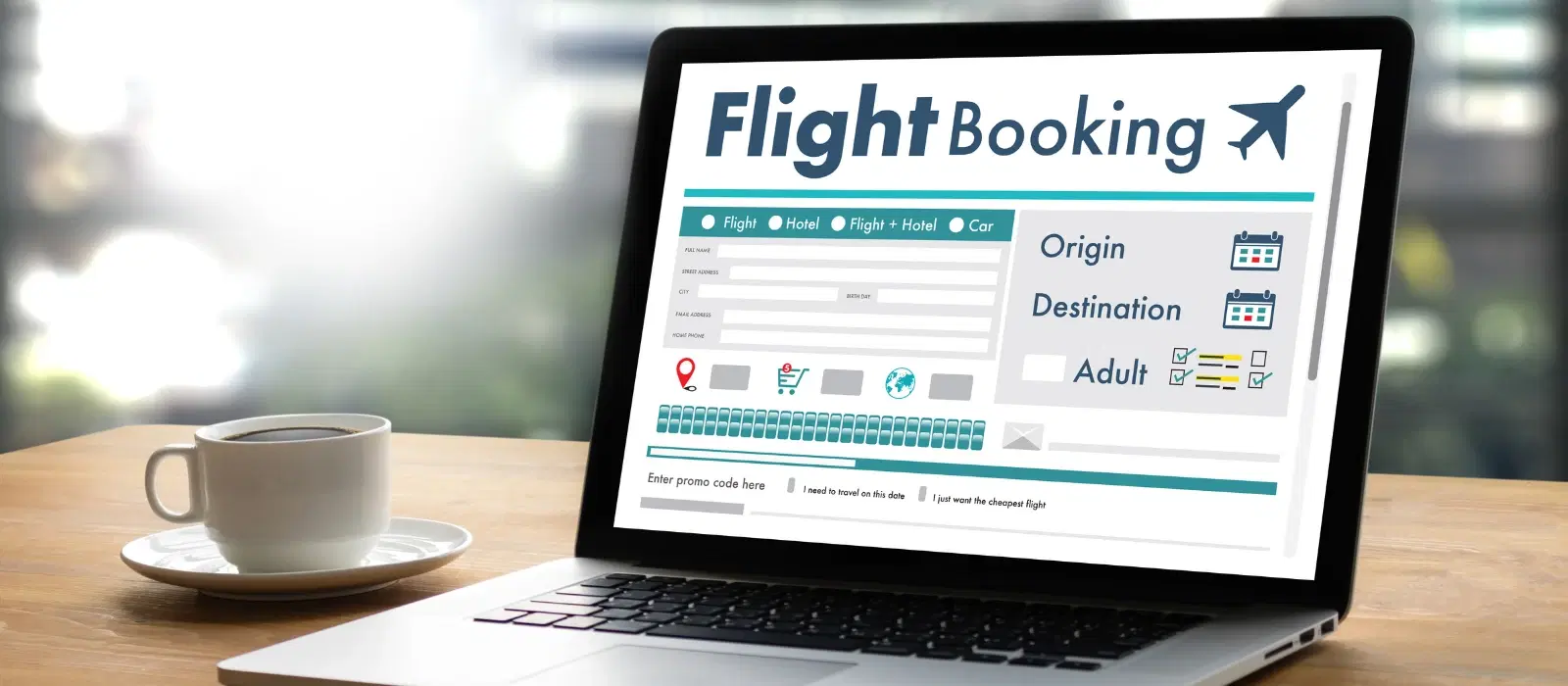
Flights
•05 min read

Imagine this: You're excitedly planning your next vacation, browsing through various flight options, and just when you think you've found the perfect deal, you notice an extra charge tagged as a 'convenience fee.' Suddenly, your budget-friendly trip starts to seem a bit more expensive. This scenario is all too familiar for many travelers. But what exactly is a convenience fee in flight booking, and why is it charged?
Understanding convenience fees is crucial for making informed travel decisions. These fees can significantly impact the total cost of your trip, and knowing how to navigate them can save you money. Let's delve into what these fees are, why they're charged, and how you can avoid or minimize them.
A convenience fee is an additional charge that airlines or booking platforms add to the cost of your flight ticket. This fee is typically applied when you use certain payment methods or book through specific channels, such as online booking portals. The primary purpose of this fee is to cover the costs associated with providing the convenience of booking and paying online.
Airlines and booking platforms charge this fee to offset the expenses related to payment processing, technology infrastructure, and customer service. It's a way for them to ensure that the convenience of booking online is financially sustainable.
When booking a flight, you may encounter various fees in addition to the base fare. Understanding these fees can help you better anticipate the total cost of your trip. Here are some common types of fees associated with flight booking:
Booking Service Fee: This is a fee charged by the booking platform for facilitating the reservation process.
Airline Convenience Charge: Similar to the convenience fee, this charge covers the cost of providing online booking services.
Ticket Booking Surcharge: An additional fee that may be applied for specific routes or during peak travel seasons.
Airfare Additional Costs: These can include taxes, airport fees, and fuel surcharges that are added to the base fare.
For example, if you're booking a flight from Mumbai to Delhi, you might see a base fare of ₹5,000. However, after adding a booking service fee of ₹200, an airline convenience charge of ₹150, and other additional costs, the total may come up to ₹5,500 or more.
Convenience fees are not arbitrary; they serve several important purposes:
Operational Costs: These fees help cover the operational costs of maintaining online booking systems, including payment processing and security measures.
Technology and Services: The revenue from convenience fees is often reinvested into enhancing technology and customer service, ensuring a smoother booking experience for travelers.
Revenue Generation: Convenience fees contribute to the airline's overall revenue, helping them maintain competitive ticket prices while offering additional services.
-95e61ea7-ab4c-459c-9b20-5d183cfc507b.png&w=3840&q=75)
While convenience fees are common, there are ways to avoid or minimize them:
Booking Directly: One of the simplest ways to avoid third-party fees is to book directly through the airline's website. This can often save you from additional charges imposed by intermediary platforms.
Membership Programs: Joining loyalty programs like Tata Neu can offer benefits such as fee waivers or reduced charges. Members can enjoy perks like exclusive discounts and rewards.
Promotions and Discounts: Keep an eye out for promotions that might offset these fees. Airlines frequently offer deals that can help reduce the overall cost of your booking.
Did You Know? Booking your flights during off-peak times can sometimes reduce or even eliminate convenience fees. Airlines often adjust their fee structures based on demand, so planning your travel during less busy periods can be a cost-effective strategy.
The average convenience fee can vary but typically ranges from ₹150 to ₹500, depending on the airline and booking platform.
Convenience fees are generally non-refundable, even if you cancel your flight. It's important to check the airline's cancellation policy for specific details.
Not all airlines charge a convenience fee, but it is a common practice among many. Always review the fee breakdown before finalizing your booking.

Most booking platforms and airline websites will display the convenience fee during the checkout process, usually as part of the total fare breakdown.
In addition to convenience fees, be aware of other potential charges such as baggage fees, seat selection fees, and in-flight service charges. Always read the terms and conditions carefully.
Yes, joining loyalty programs like Tata Neu can offer benefits such as fee waivers or reduced charges, exclusive discounts, and rewards that can offset convenience fees.
Booking during off-peak times, using airline websites directly, and keeping an eye out for promotions can help reduce or avoid high fees.
Understanding convenience fees and other associated charges is essential for making informed travel decisions. By being aware of these fees and knowing how to avoid or minimize them, you can ensure a smoother and more cost-effective booking experience. Remember, booking directly through airline websites and taking advantage of loyalty programs like Tata Neu can help you save on these extra costs.
Ready to book your next flight? Choose Tata Neu for a seamless and enriched travel experience. With our reliable and affordable options through Air India and Air India Express, your journey is in good hands.
Always check for convenience fees before finalizing your booking.
Consider joining loyalty programs to potentially waive these fees.
Look for promotions and discounts to offset additional costs.
Book directly through airline websites when possible to avoid third-party fees.
Take advantage of Tata Neu's integrated loyalty program for rewards and exclusive member deals.